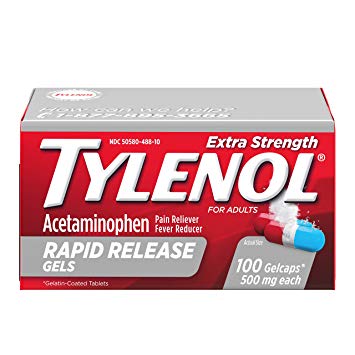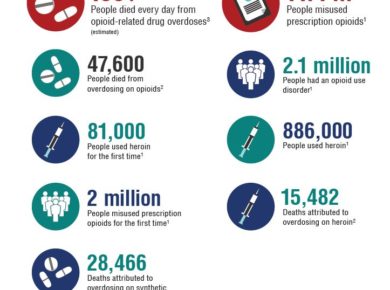It is believed that Tylenol is safe, because it is recommended all the time by doctors for pain and because it is available over the counter.
Nothing could be further from this “truth”.
First, Tylenol deplete glutathione levels in the cells.
Glutathione performs several functions in the body:
• making DNA, the building blocks of proteins and cells
• supporting immune function
• forming sperm cells
• breaking down some free radicals
• helping certain enzymes function
• regenerating vitamins C and E
• transporting mercury and other toxins out of the body
• helping the liver and gallbladder deal with fats
• assisting regular cell death (a process known as apoptosis)
Second, Tylenol use is the leading cause of liver failure.
Third, it has been shown to increase the risk of autism after vaccinations.
Fourth, two highly concerning clinical studies in four years reveal that Tylenol not only kills pain but human empathy as well, adding soul-deadening properties to its well-known list of serious side effects.
In 2015, a groundbreaking study found that Tylenol has potent psychotropic side effects highly relevant to human social connection and behavior, such as blunting both positive and negative emotional stimuli, also known as “affect flattening” in psychiatric terminology.
Now, a new study published last month in the journal Frontiers of Psychology, titled, “A Social Analgesic? Acetaminophen (Paracetamol) Reduces Positive Empathy,” further confirms that this extremely popular drug (billions of doses taken annually) directly interferes with the experience of human empathic connection; specifically, reducing empathy for other people’s suffering.
In the new study, researchers tested the hypothesis that Tylenol impaired affective processes related to the experience of empathy with a double-blinded, placebo-controlled trial consisting of 114 undergraduate students, who randomly received either 1,000 mg of the drug or a placebo.
The authors stated:
“Results showed that acetaminophen reduced personal pleasure and other-directed empathic feelings in response to these scenarios. These findings suggest that
(1) acetaminophen reduces affective reactivity to other people’s positive experiences and
(2) the experience of physical pain and positive empathy may have a more similar neurochemical basis than previously assumed.
Because the experience of positive empathy is related to prosocial behavior, our findings also raise questions about the societal impact of excessive acetaminophen consumption.”
The researchers elaborated on the implications of their findings in the study conclusion as follows:
“Finally, our findings have important practical implications. Positive empathy provides part of the “social glue” from which interpersonal bonds are built and strengthened.
As such, taking pleasure from the good fortune of others fosters interpersonal connection, trust, and – ultimately – prosocial behavior, thus providing important societal benefits.
These benefits have to be viewed in the context of the amount of people regularly consuming acetaminophen. An estimated quarter of all US American adults take a drug containing acetaminophen every week.
It is thus possible that the pervasive use of acetaminophen among Americans may substantially reduce these benefits.
Overall, the present research shows that acetaminophen reduces empathy for the pleasurable experiences of other people.
These findings not only constitute an important step forward in our understanding of the affective mechanisms underlying the experience of positive empathy but also raise concern about the societal impact of excessive acetaminophen consumption.”
Could Tylenol be contributing to anti-social behavior in exposed populations?
Like psychiatric medications, with their well-known association with violence against self and other, drugs designed to blunt pain on a merely symptomatic physical or psychological, instead of addressing the root causes of the suffering, can lead to behaviors that demonstrate a lack of compassion and consideration for others.
Dr. Serge
#thenutritionscientist
http://www.greenmedinfo.com/blog/consumer-alert-tylenols-empathy-killing-properties-confirmed-2nd-study?mc_cid=c597b93267&mc_eid=365b4bcd85





